- JP
- EN
Human Capital Activation to Ensure Safety
BRM Training/ERM Training
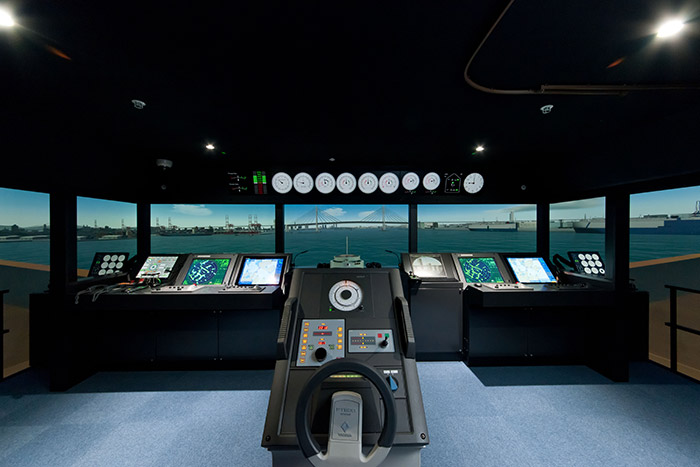
The Bridge Resource Management (BRM) training targeting Master / Navigation Officer and the Engine Resource Management (ERM) training targeting Chief Engineer / Engineers are positioned as the core to support safe operation at MOL.
The purpose of this training is to achieve safe operation by teamwork, quality communication and full utilization of available resources (people, equipment, information, etc.), and not only by technical knowledge and skills such as ship handling techniques and equipment operation methods.
Nippon Kaiji Kyokai (Class NK) has accredited our BRM training and ERM training as conforming to the IMO model course. Both can be offered to seafarers from companies outside the MOL Group.
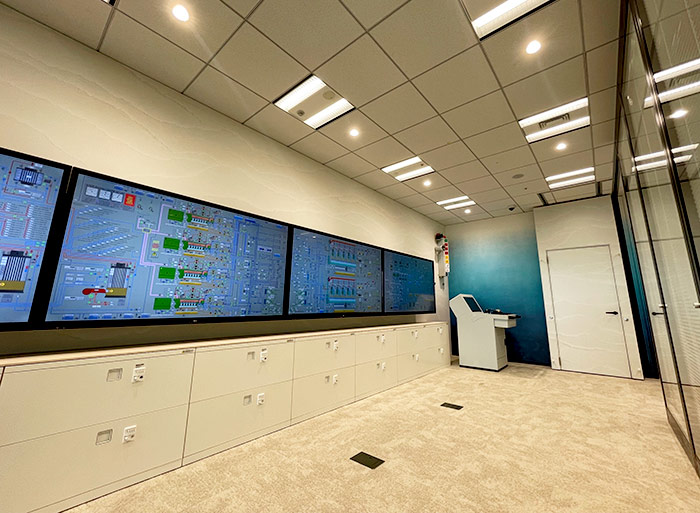
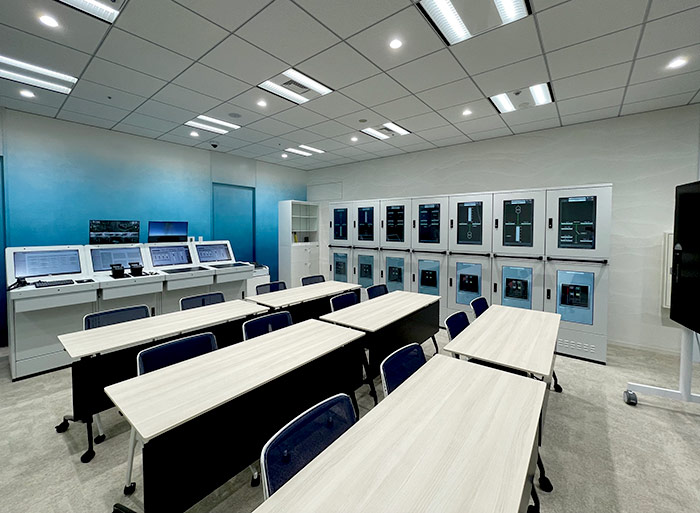
Engine simulator that replicates and performs actual environments (Engine Room/Engine Control Room)
On-the-job Training (OJT) Instructor System
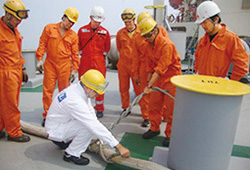
The system involves experienced captains and chief engineers who understand MOL safe operation standards traveling onboard ships to identify unsafe practices and latent risks only discoverable on the ships in service, and order immediate improvements. Information on near misses, best practices, and the like is also disseminated on each ship to help raise safety awareness and prevent human error.
IKOI
MOL has developed an on-board accommodation area concept in collaboration with partners such as shipyards and design companies to ensure the well-being of crew members. MOL improves onboard life in terms of hygiene, privacy, comfort, health, and convenience, creating a stress-free environment. Additionally, MOL has established "IKOI" as a new third place onboard, creating a more attractive and fulfilling environment for each individual to live and work in. "IKOI" is positioned as a space that is separated from job and work locations (a space that anyone can use and is conducive to relaxation and stress relief), a space where everyone can enjoy what they want to do in their own way.
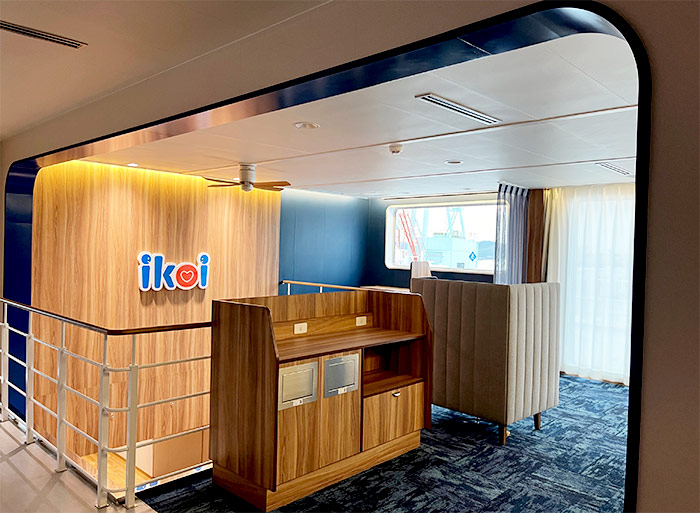
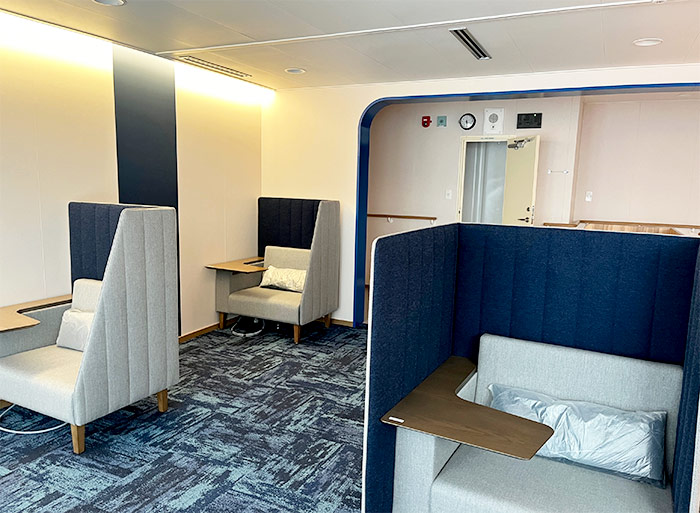
IKOI implementation example
ITSUMO
In order to share various maritime information such as safety alerts, educational materials, etc. issued by MOL and MOL's in-house ship management companies with seafarers, information sharing portal (ITSUMO: Information Transfer and Sharing Utilization for MOL Seafarers) was developed.
By using ITSUMO, Seafarers can check information in a timely manner not only while on board, but also during on leave.
Through the expansion of ITUSMO usage, we aim to eliminate accidents on board by increasing penetration of the information.
MOL Optimal Bridge
The bridge is the nerve center of a merchant ship. MOL has adopted the "integrated bridge" approach, which clarifies the bridge position of officers on duty and ensures their traffic flow and communication lines by integrating instruments and gauges in one central location. In addition, they can obtain updates on ever-changing conditions surrounding the vessel more quickly than with a standard bridge layout, allowing them to make swifter, better decisions regarding vessel operating safety.
- Officers can see 360° around the vessel, enhancing visual watch-keeping.
- Traffic flow and communication lines of the officers on duty can be secured without inhibiting the forward visibility of the helmsman. Everyone on duty-the captain, pilots, and officers-can independently operate and monitor nautical gauges and instruments, strengthening Bridge Resource Management (BRM*).
- Integration of nautical gauges and instruments also allows their wiring to be integrated. This helps prevent a reoccurrence of a past incident in which wires to nautical instruments burned out.
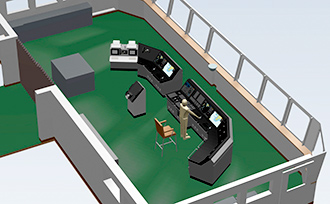 * BRM:Bridge Resource Management (BRM)
* BRM:Bridge Resource Management (BRM)
BRM prevents human errors or remedies the effects of those errors at an early stage. The concept is based on making the best use of human resources (captain, officers, and other crewmembers on deck) and resources such as information available on the bridge.
- Sustainability TOP
- Message from the Chief Sustainability Officer
- Sustainability
Management - Value Creation
Stories - Safety & Value
- Environment
- Human & Community
- Innovation
- Governance
- Stakeholder
Engagement - Sustainable Finance
- Sustainability Data
- ESG Disclosure
Guideline Indexes - External Recognition
- Library



